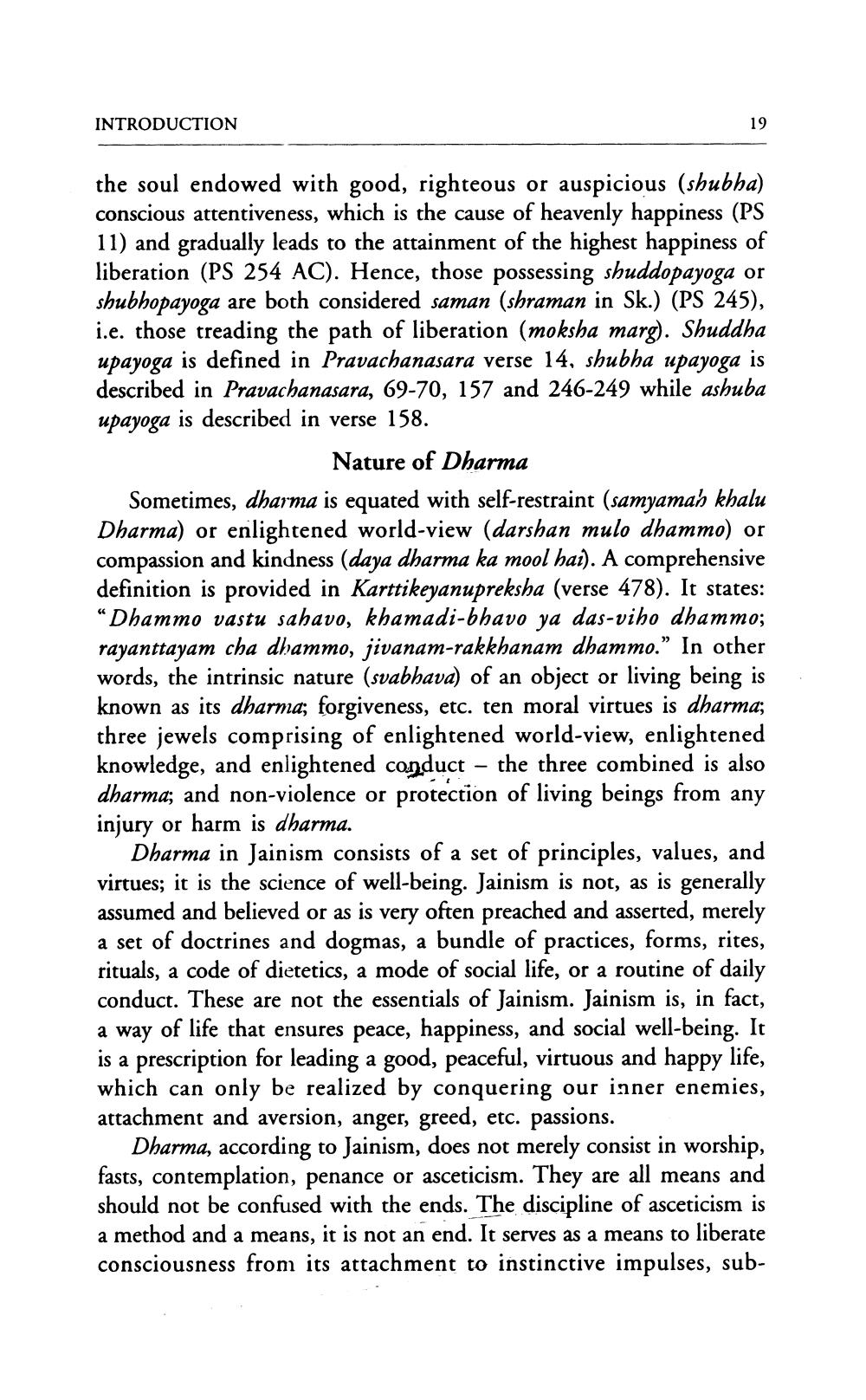________________
INTRODUCTION
19
the soul endowed with good, righteous or auspicious (shubha) conscious attentiveness, which is the cause of heavenly happiness (PS 11) and gradually leads to the attainment of the highest happiness of liberation (PS 254 AC). Hence, those possessing shuddopayoga or shubhopayoga are both considered saman (shraman in Sk.) (PS 245), i.e. those treading the path of liberation (moksha marg). Shuddha upayoga is defined in Pravachanasara verse 14, shubha upayoga is described in Pravachanasara, 69-70, 157 and 246-249 while ashuba upayoga is described in verse 158.
Nature of Dharma
Sometimes, dharma is equated with self-restraint (samyamah khalu Dharma) or enlightened world-view (darshan mulo dhammo) or compassion and kindness (daya dharma ka mool hai). A comprehensive definition is provided in Karttikeyanupreksha (verse 478). It states: "Dhammo vastu sahavo, khamadi-bhavo ya das-viho dhammo; rayanttayam cha dhammo, jivanam-rakkhanam dhammo." In other words, the intrinsic nature (svabhava) of an object or living being is known as its dharma, forgiveness, etc. ten moral virtues is dharma, three jewels comprising of enlightened world-view, enlightened knowledge, and enlightened conduct the three combined is also dharma; and non-violence or protection of living beings from any injury or harm is dharma.
Dharma in Jainism consists of a set of principles, values, and virtues; it is the science of well-being. Jainism is not, as is generally assumed and believed or as is very often preached and asserted, merely a set of doctrines and dogmas, a bundle of practices, forms, rites, rituals, a code of dietetics, a mode of social life, or a routine of daily conduct. These are not the essentials of Jainism. Jainism is, in fact, a way of life that ensures peace, happiness, and social well-being. It is a prescription for leading a good, peaceful, virtuous and happy life, which can only be realized by conquering our inner enemies, attachment and aversion, anger, greed, etc. passions.
Dharma, according to Jainism, does not merely consist in worship, fasts, contemplation, penance or asceticism. They are all means and should not be confused with the ends. The discipline of asceticism is a method and a means, it is not an end. It serves as a means to liberate consciousness from its attachment to instinctive impulses, sub




